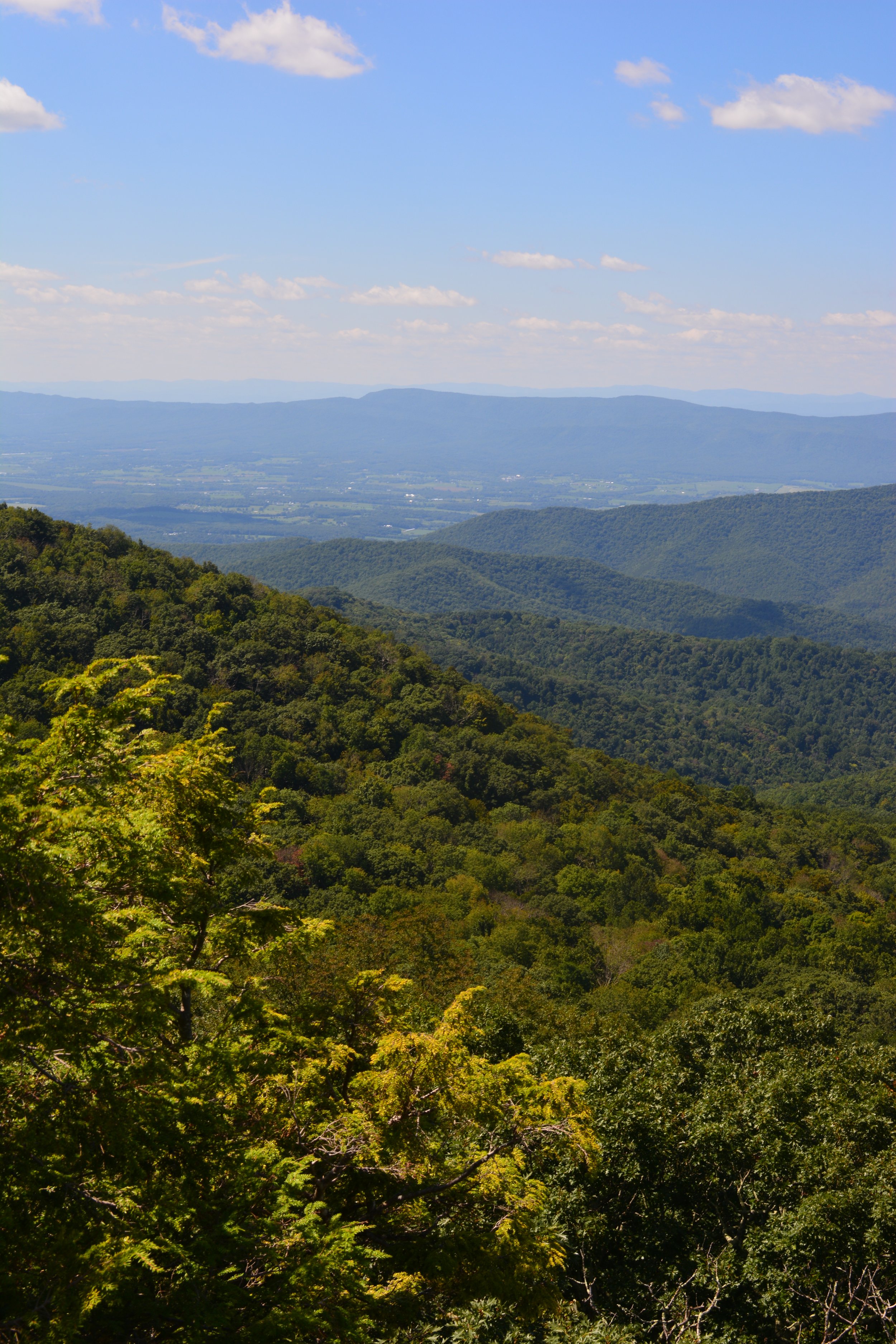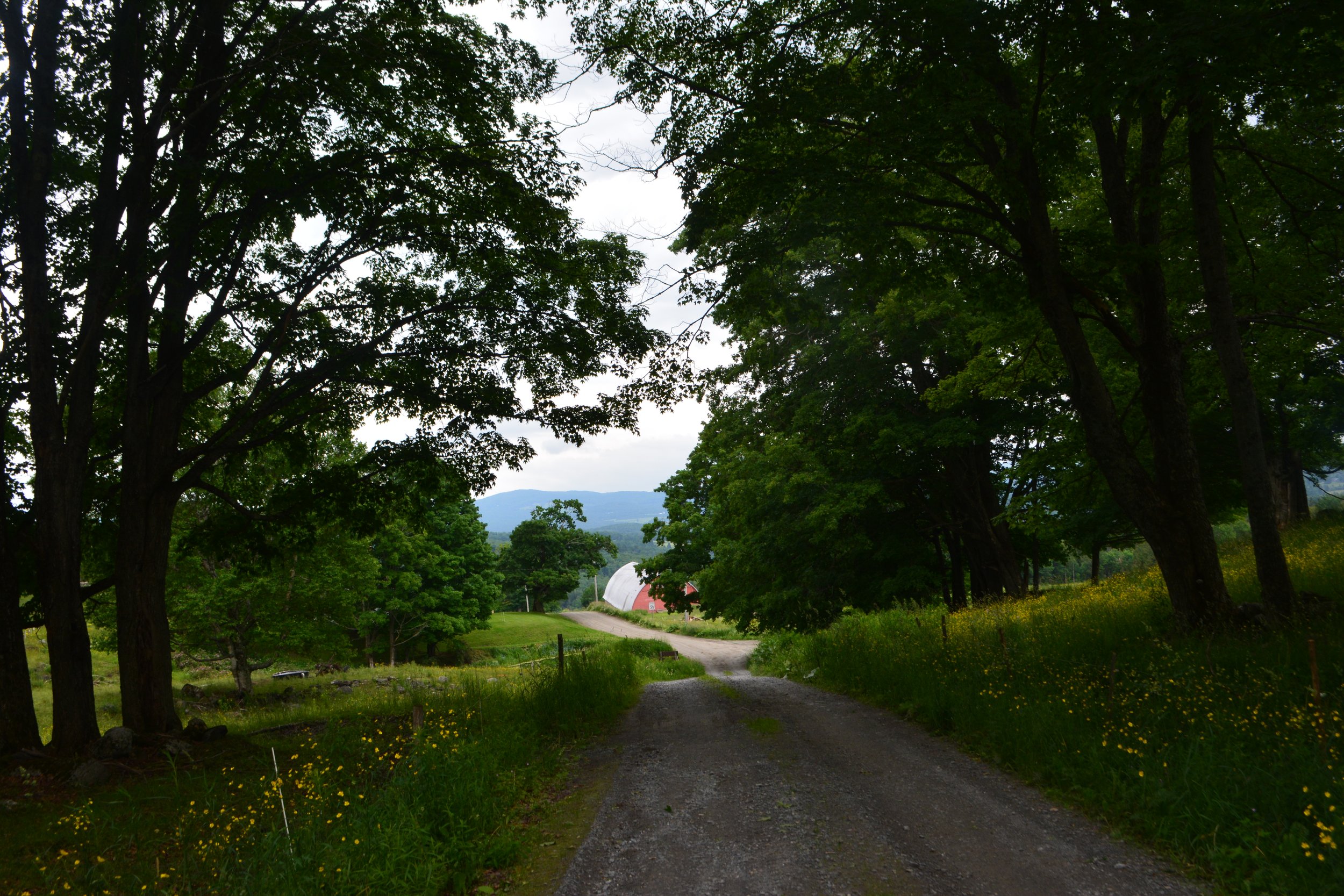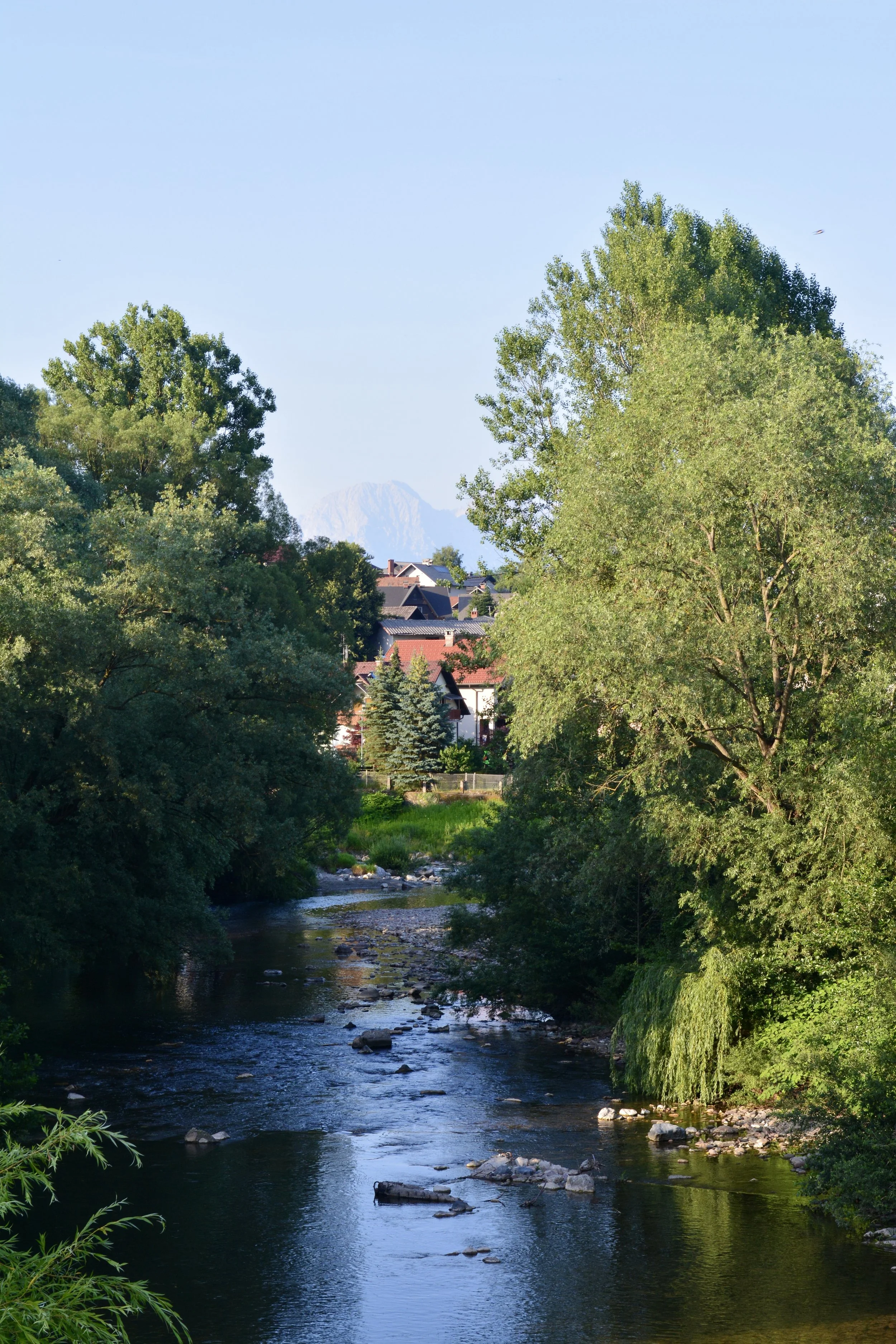I.
The sun:
Domineering and vindictive.
I can’t look at it.
I can only observe it,
As heat rising off the road
Or as the perimeter of shadows.
This heavy-in-the-sky sun,
Above me now,
Tanning my skin as I run—
This is the same sun that was blotted out by the moon
For a few minutes last April.
Looking at the sun for the first time,
We hollered and cried,
But even then, what we saw
Was the moon,
Like on so many nights.
The Solar Eclipse, April 8th, 2024., as we saw it from Meadville, PA.
II.
It’s 90 degrees outside and a lethal coating of humidity hangs over everything. With one mile to go, a chill radiates from my torso down my arms and legs, flesh of my skin pricking up. I recognize the shock feeling of cold, counterintuitively, as a symptom of heat exhaustion. Lonely, anxious, sweaty, and wrung out—with cars roaring past me—the hot beating rejection of the move throbs in my temples. I make my way back inside our apartment and lean against the kitchen countertop, nursing an electrolyte drink, waiting for the fuzziness to pass.
Here I am: In Naples, Florida, in June. We moved down from Washington, D.C. because Sophie got a good job at the local art museum. We packed up the car and drove down over the course of five days. One-way road trips tend to elicit a mixture of excitement and trepidation, and this one was no different. We got our apartment sight-unseen, the whole move made in a rush. Once we got here, and began to settle in, the initial excitement quickly wore off. I missed my friends and my family. My routines, those of which I could continue, felt unmistakably changed. For instance, much of my running now took place unceremoniously along concrete sidewalks baking flat and exposed under an oblivion of sky.
Filmy, shallow waves in August.
III.
The sand stretches dull and white down to the Gulf. Flat waves break filmy and shallow, receding slackly into the hot sea. Somewhere far off there is the hum of air-conditioning units buried behind hedges. I’m standing here, at the water’s edge, but that doesn’t really matter. You could have been standing here. Or anybody else. The long desolate beach is anonymous and all looks more or less the same.
I’m thinking about how Naples, Florida was recently named the best place to live in America. Even in my current state, I’ll concede Naples is probably in the top fifty percent of places to live in America. But surely it isn’t the best. Something doesn’t add up. In my mind, the best place to live in America has to be livable for the average person, and, what’s more, it has to be desirable and sustainable to live there. I thought the best place would be more average and more good than this place.
This is one of the first things that struck me about Naples: It’s a place defined by how it is advertised—a vacation paradise—that falls short of those hyperbolic claims. Perhaps it used to be great. Before all the traffic and rising cost of living and climate change^1. Naples is a town in a state riddled with contradictions that form the basis of its identity. Even the air—light, ethereal, hardly noticeable air—is thick, vegetal, heavy, and damp.
It is that same mixture of air, heat, water, and sunshine that draws people here. They come for a sense of paradise and freedom but end up in sprawling, often private communities disconnected from one another.^2 In Florida, the sum collective of individual freedoms often converge on systems nobody truly wants—an emergent property of lavish spending coupled with the impetus to design everything around personal convenience.
Many houses are newly built or are in the process of rebuilding. They’re sprawling concrete constructions of hard straight lines that lack the necessary harmony and history to cling together as truly compelling three-dimensional spaces. Most will have a garage and a lawn, many a pool, and some a dock. There’s a Floridian tendency to maximize waterfront value that dictates the shape of entire communities and makes strange, unnatural maps where houses look like metal filaments attracted to the magnetic pull of water. These houses tend to look entirely computer rendered, even after construction. They’re maintained by groundskeepers and landscapers who are engaged in a near-constant process of upkeep. The goal of their labor is to obfuscate their very existence, to create the illusion of natural manicure.^3 Naples has the aura of a golf course fairway.
In addition to allegedly being the best place in America to live, Naples also boasts the record for the most expensive house ever listed on the U.S. market—a 9-acre waterfront estate that until recently had an asking price of $295 million (since lowered to $210 million). The property has water on three sides, and boasts private yacht and beach access; though the beach itself is fundamentally the same as the other patches of beach that are public.^4
So many spaces here are private. And many are literally fenced off.^5 But from what, exactly? That’s a question I keep asking. Perhaps from an imagined threat, the same sort of bogeyman invoked when I tell people in Naples I moved here from D.C.
“Oh, I’m sorry to hear that. It’s good you got away from all the crime,” they say.^6
But the impetus can be as mundane as drivers cutting through a neighborhood to avoid traffic. That’s how my friend’s HOA decided to gate their community: because too many cars were cutting through to avoid traffic. If the multi-million dollar house with access to water is one image to sum up Naples, then the other is this: A large, gated community with the majority of its land dedicated to parking, run by an HOA that has decided to fence it off from the surrounding roads to protect its car-dependent inhabitants from the tyranny of automobiles.
One representation of the Naples, FL real estate scene.
An actual house.
IV.
Sophie and I often joke that living in our apartment building feels like living in a kind of purgatory. For all its resort-style conveniences, our building feels both poorly made and poorly maintained. A door might be off its hinges for a week; broken pottery left in the stairwell for about as long. I pick up trash when I can but it’s not much. The strange mix of superficial flair and the sense of having fallen makes me like we are being punished by some absent God.
But, hear me out: I don’t consider myself to be a negative person. And I don’t intend to seem ungrateful for the relative ease of my life. Even this apartment building that I resent represents, for some, the ultimate goals of comfort and convenience. I suspect, even for all my high-mindedness, I am also after these things.
I’m struggling because I don’t want this essay to be, at its core, a complaint. But much of my writing is about place, and I don’t like it here, and I want to write something true. So what am I to do?
I try to imagine the landscapes that used to be here. The wetlands and the pine flat-woods. Now mostly gone—cleared to construct yet another strip mall. And that just makes me so damn sad.
Sometimes I feel like I’m wilting spiritually. Sometimes I feel like a circle being drawn to a point, a knot tightening in on itself.
I want to erase the boundaries of myself and meld with something unknown. I don’t want more time for myself. I am simply not that interesting. I am interested in people, in animals, in the land. And I’m trying. Sophie is trying. We’re trying together and I am proud to say we have made some friends.
There are other positives I could enumerate. The light and warmth available to us in February. The cold salty ocean and the feeling of wriggling around in the surf after sundown. The staggering sight of the stars in Big Cypress.
There are times I’m running on the Gordon River Greenway and it’s so spectacularly quiet, as if the water molecules in the air are dampening the vibrations of modern life—traffic, planes, and the rest—and the noises of insects are a background sound to my animal brain. I’m running through this unfamiliar land feeling like I could, yes I could, find some happiness here.
When it’s November and still hot and I miss the contemplative, northeastern autumns of my youth and I’m down here so far away from all that but I’ve just finished a good run, red-cheeked and relishing, even in the barefaced beating-back of the bright sun and the constant warmth.
When it’s finally twilight and the cool sweeps in on a soft breeze and I think: this could be a new kind of autumn for my soul.
When I think: what if adult life is, at its core, the practice of growing accustomed to the situation in which you find yourself?
But I also wonder: Am I wrong for wanting more?
Sunset on the Gulf.
The Gordon River Greenway, Dirt Trail.
Footnotes:
South Florida is literally sinking into the sea. I often think about how this will happen gradually and then, with one bad hurricane, all at once—how nobody is likely to dismantle this place before it’s gone.
Some European nations, like Sweden, Scotland, and the UK, recognize the right to roam, which allows people to access certain stretches of private land for select uses, like walking. In the UK, rambling—walking long stretches of countryside—is a popular pastime. Because property rights in the United States include the right to exclude others, no such right to roam exists.
Many of these workers are Hispanic and spend more time here than the largely white snowbird crowd whose properties they are maintaining. You could easily make the argument that they are more “Naples” than their employers.
The beach! Great democratic watering hole—where people of all ages can coexist in relative peace. Where little is needed except for a towel and a bathing suit. Where one can practice modesty and be situated in something approaching community. Yes, the beach. How much better it must be to consume the same thing by yourself.
Fences and gates, even if deployed preventatively, affect how you perceive the world. They’re a visual reminder of danger. They say: you are a little less safe than you think.
I find it interesting that just as the people of Florida have a skewed perspective of the people of D.C (i.e., “Crime!”), many of our friends in D.C. reacted with similar bias towards their idea of the people of Florida when we told them we were moving here (i.e., “Florida man! Eccentric crime!”).



























